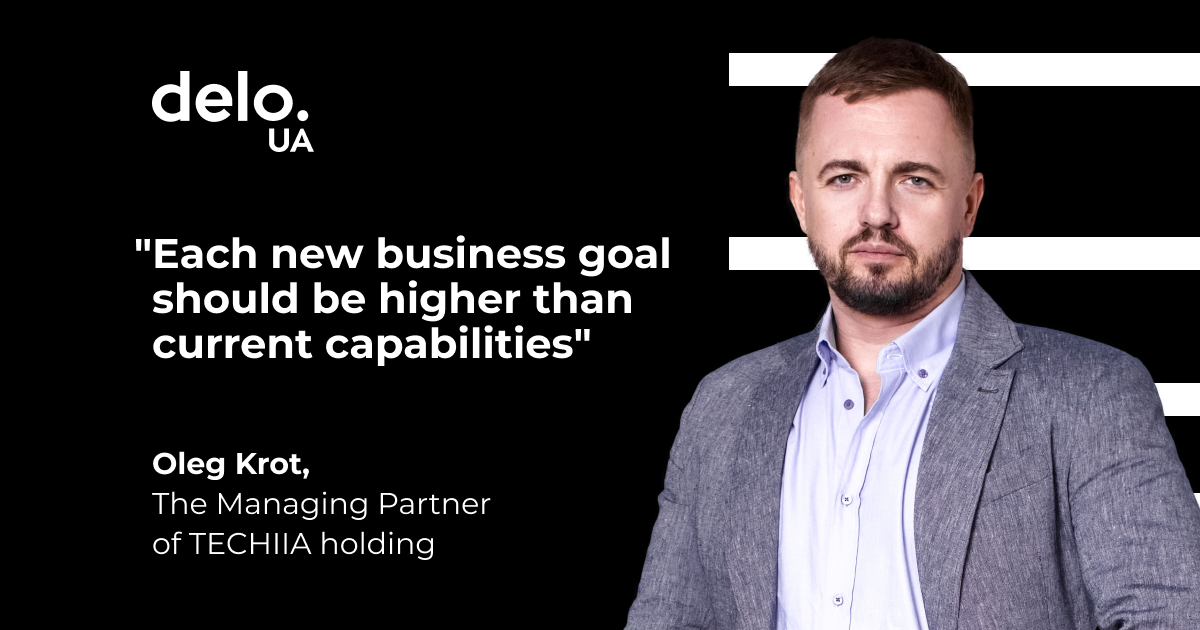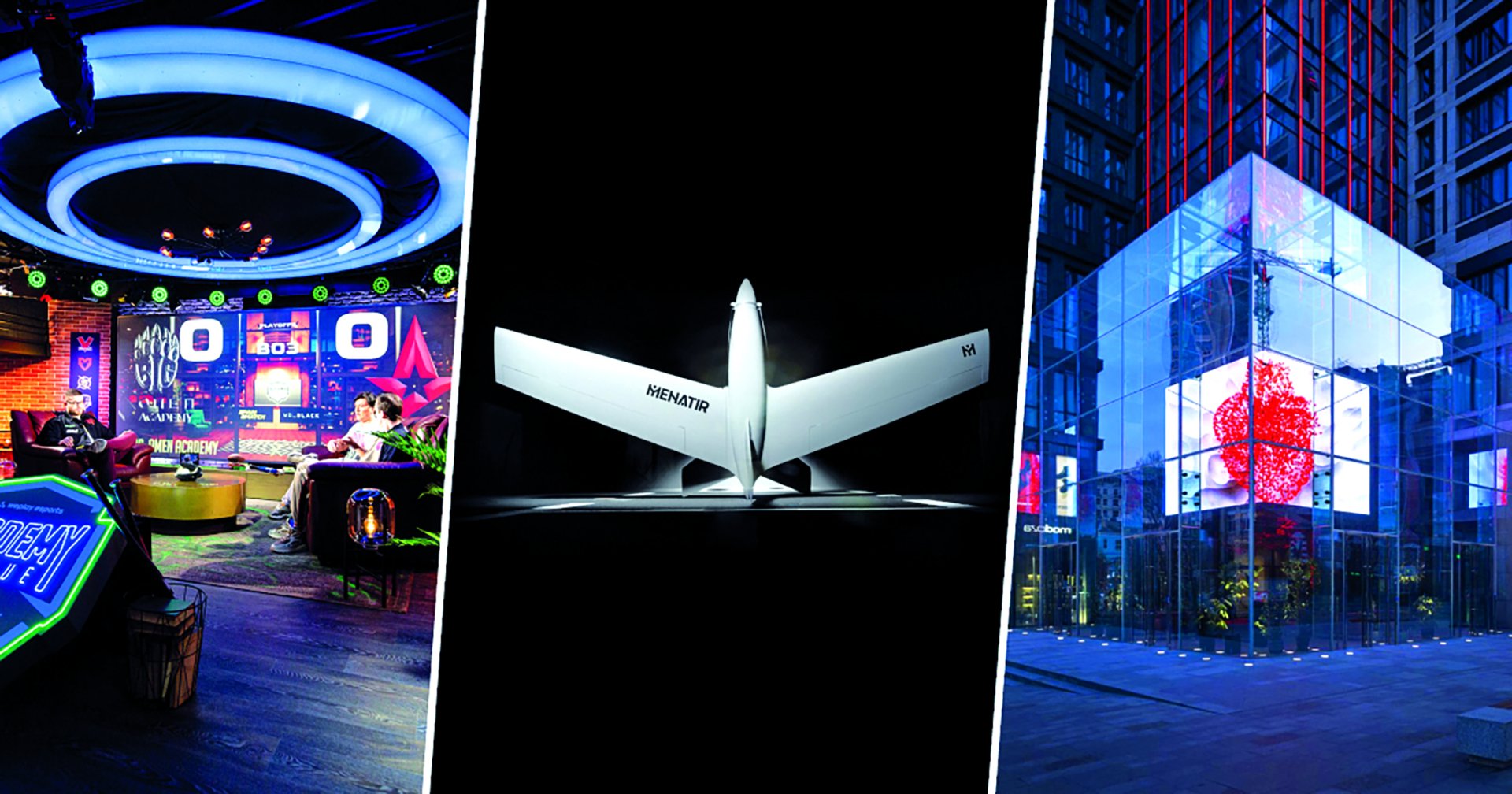
International technology holding , like most businesses in 2022, became stronger through the trials of war. It has found new markets, invested in a Ukrainian manufacturer of insulated glass units with higher stiffness, and became a significant donor to the Armed Forces of Ukraine. Oleg Krot, the managing partner of TECHIIA, spoke about the business's stress resistance, the role of leadership, and social and personal responsibility.
What has allowed you to maintain business stability over the past two years?
The only thing in which we maintain stability is the confidence of our employees and partners that the holding is stable and capable of handling various challenges. In everything else, the crisis is not a time for standing still but for quickly discarding what is not viable and realizing new opportunities. Since 2014, we have been building businesses in various sectors and markets precisely to quickly redistribute efforts in a crisis in a particular country or industry. It was the case in 2022 when TECHIIA closed all projects in the markets of Russia and Belarus after the full-scale invasion. Instead, several businesses are expanding into North and South America, Europe, and Asia.
The change in markets partly led to a change in approaches. An example is our company WePlay Esports. Previously, it was only an organizer of Esports events, but over the past year, it has transformed into a full-fledged media holding company with a broad profile. In particular, it has produced shows for the American Football League (NFL) and helped create the Ukrainian-language broadcast of the World Cup.
How to increase the stress resistance of business?
How to increase a person's stress resistance? Training. The same with business. You expose it to stress, allow it to recover and learn from the experience, and gradually increase complexity. Ideally, each new business goal should be higher than the current capabilities, but not by too much, so the stress level is manageable.
Unfortunately, we have lived in non-ideal conditions for years, where global traumatic events are superimposed on business stresses. It is terrible for reliable development. However, just like people, some companies get post-traumatic stress disorders, while most undergo post-traumatic growth. Discussions on the topic "ATO/JFO, COVID, and global crises have prepared us for a full-scale warfare" are about this.

In the photo: WePlay Esports Studio, the Menatir UAV from Culver Aviation, and the glass cube of the entrance of the Chicago residential complex in Kyiv from Aestech — projects of TECHIIA holding companies
How to build relationships with different types of stakeholders in the digital world?
Regularly synchronize ideas, actions, and results. Consistently and honestly. Digital capabilities make such synchronization easier, primarily if a team works across several continents, like ours. However, I like personal face-to-face meetings, mainly for critical issues, especially during such turbulence as now.
How has the role of a leader in a company changed? Should we forget about democracy until better times?
It's both yes and no. I know, for example, business people who have minimized democracy. They reduced the powers of the board of directors and transferred many processes to manual mode with strict vertical reporting. But the thing is, they already had an authoritarian style. Superficial democracy was a luxury of peaceful times, and Russian aggression eroded it.
We have a different approach. In the hiring process, we have a high criterion for initiative and responsibility. We see the purpose of this during critical moments. Even during the first few days of the full-scale invasion, all we needed to say was, "Colleagues, first and foremost, take care of your safety and your loved ones. Here are some opportunities to do so. And gradually get back to work." Mostly, people quickly picked up on things and proposed new ideas. Work was their island of normalcy. In the first few days, we allocated a large sum of money from the holding to help the army and civilians affected. And that also helped many people come back to their senses.
But there are no dogmas, and there never will be. Management style depends on a lot of factors. Among the obvious ones are the leader's personality, type of business, level of maturity, market position, state of the market itself, entrepreneurial culture, economy, and country. All of this is constantly changing. Therefore, flexibility is key.
New roles in communication with the team — from boss to psychologist. What advice would you give to keep everyone in a crisis?
There is no magic pill for this. A crisis only reveals how successfully we found each other before it happened. But it is impossible and unnecessary to hold onto everyone during a crisis. That's why such a situation is an opportunity to move forward, to find the best ways and forms. The foundation of communication with the team remains unchanged regardless of the period — it’s about humanity and honesty.
A new level of responsibility concept in Ukraine or how businesses solve military and civilian issues during wartime: tell us about TECHIIA's approaches.
We aim to address points of societal deficit that may not always be obvious. Our principle is to provide maximum benefit to the maximum number of people. An example is the "Get Well Soon!" project, which has been running for four years. It is focused on combating childhood cancer in Ukraine but has recently expanded to include support for the overall medical system. We purchase modern equipment for overloaded regional hospitals so people can receive qualified surgical and other assistance right where they live. We also fully finance the "Eva" Inclusion and Correction Center, where children who have undergone severe cancer treatment or have various disabilities can receive rehabilitation services free of charge.
When February 24, 2022, arrived, we were fortunate to have all the important elements of support: experienced volunteers from 2014 in Ukraine and abroad, contacts in specific humanitarian organizations and military units, strong expertise in procurement and communications with Ukrainian and foreign suppliers, established logistics, and the presence of the public organization "Techiia Foundation." Therefore, from the first days, we have provided comprehensive assistance: finding, buying, delivering, and transporting. Only through the Techiia Foundation, we have provided necessary equipment and supplies to the Defense Forces of Ukraine for over $22 million. And there are also personal contributions.
In the near future, in partnership with several Ukrainian organizations, we will launch a program to provide prosthetics to military and civilian individuals injured due to the war.
Crisis as a new opportunity: which areas of business/economic sectors will actively develop in the coming years? Where is it worth investing money and effort?
Locally — military tech, energy independence, healthcare, particularly prosthetic technologies, and reconstruction of cities and infrastructure, including developing new components and construction technologies. High-value-added products — anywhere, from agriculture and metallurgy to light industry and IT. We've discussed these opportunities for years, but progress has been slow, especially when everything was relatively good.
Globally — we need to finally realize that we are part of the world economy, not just at the level of "without our grain, Africa will die." When creating a product, we need to think immediately about scaling it.
For example, Ukraine is actively integrating into the EU market regarding economy, transport, and energy. Therefore, exploring demand there and organizing patenting, certification, logistics, and local representation makes sense. If you don’t see such scenarios, if the project’s ambitions are limited to one district, city, or even country, perhaps the project is not worth the investment and nerves.
Source:


